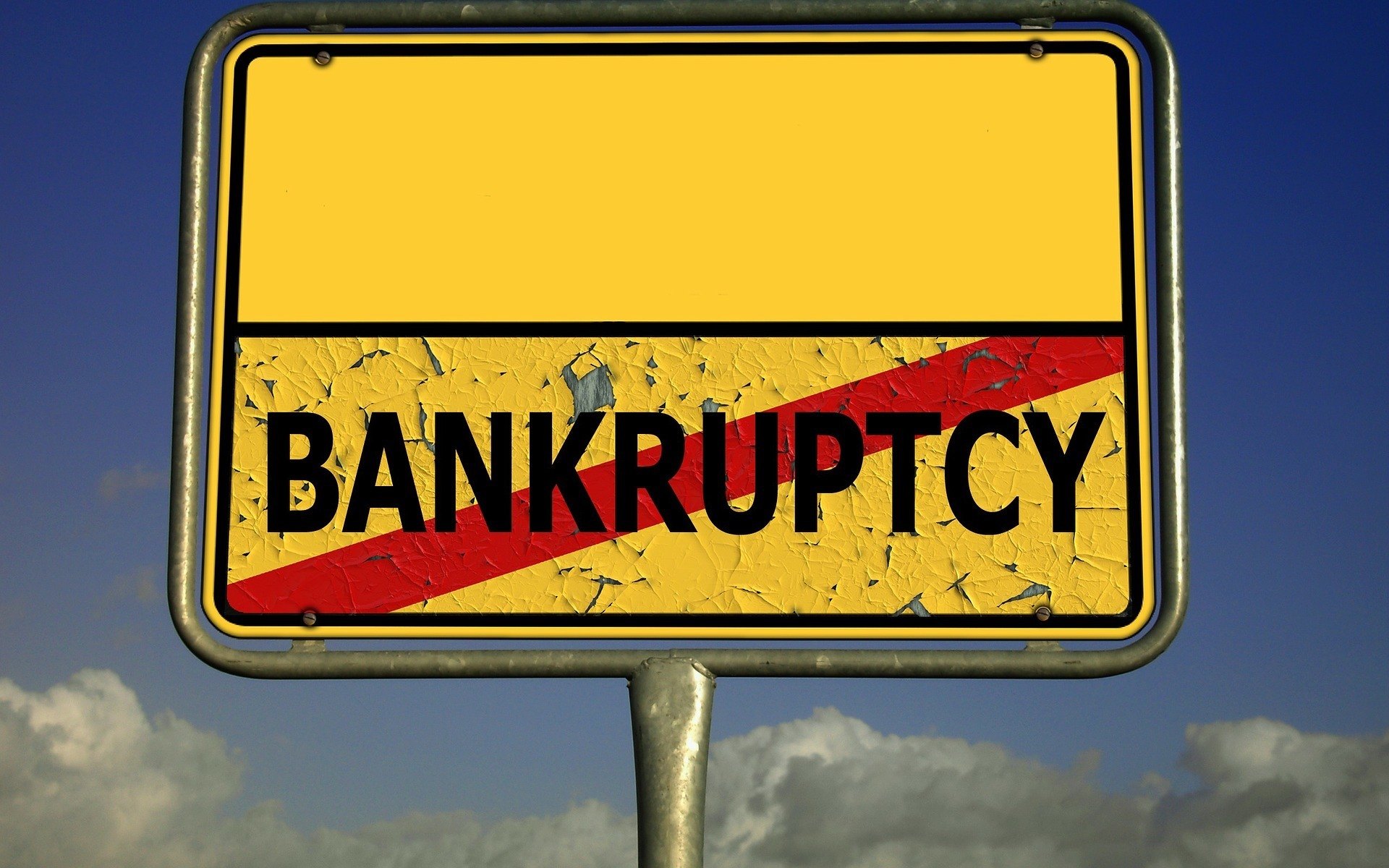
Airline Bankruptcies: What Are Your Rights?
If an airline goes bankrupt and ceases operating it generates headlines across the globe. But spare a thought for the blameless passengers, who are abruptly thrust into a nightmare scenario. Some find themselves suddenly stranded in foreign countries, and many more learn that their flight tickets for long-planned holidays are suddenly worthless.
If you’re in that situation right now we can explain your rights, and tell you how to you can get a refund or a flight home. We’ll also give advice on how you can protect yourself from airline bankruptcies in the future.
- What to do if your airline goes bust
- How to protect yourself from airline bankruptcies
- Major airline bankruptcies – and what happened
- Definitions: airline bankruptcy vs airline failure
- What does bankruptcy mean for flight compensation claims?
Just a note: this advice is for UK air passengers. If you bought your tickets in another country your rights may be different. You can read our advice for different countries here:
What to do if your airline goes bust
When your flight is delayed you can apply for flight delayed compensation. When an airline goes bankrupt the situation is very different. One of the worst things for passengers of recently bankrupt airlines is the lack of information available. At the precise moment you need to know what’s going on, there is no-one left at the airline to help you.
Start by checking your airline’s website. Before the airline fails most will leave an update – and if there is likely to be assistance for passengers abroad it will be mentioned there.
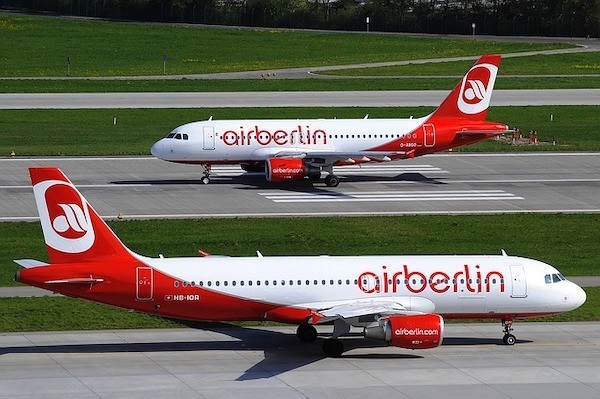
There’s probably not going to be a lot to go on though, so it’s good to read up on your rights, and know how you can get a refund or a flight home.
Airline bankruptcy: UK air passenger rights
First the bad news. When an airline goes bust your tickets become essentially worthless and you can’t be sure to get a flight refund. But fortunately, the UK has some protections in place for air passengers if their airlines go bust.
Find out if you are ATOL Protected
The first thing you need to do is find out if your flight was ATOL protected. ATOL stands for Air Travel Organiser’s Licence and is a UK financial protection scheme which covers about 20 million holidaymakers and travellers each year.
Many travel agents and booking sites offer ATOL protection. Upon purchase, you will be presented with an ATOL receipt, which will be proof that your flight is protected in case something happens.
One of the advantages of ATOL is that it makes it very easy to receive a refund for a flight in case of airline bankruptcy. If your flight is cancelled whilst you are abroad, ATOL also helps you book a flight home with the help of the CAA (Civil Aviation Authority).
Getting a ticket home
What if you’re not covered by ATOL? In the past, some airlines have stepped in to offer stranded passengers a route home. This rarely happens now, and if airlines do offer assistance it is likely to be a discounted fare, rather than recognising the ticket that’s already been purchased.
If the government or other airlines aren’t stepping in to offer assistance, your best course of action is to buy replacement flights yourself, and try to get a refund for the original ticket.
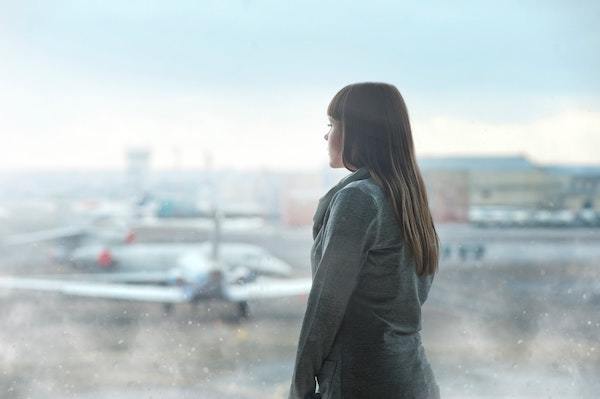
Sadly this will leave many travellers out of pocket, but this is often the only way to recoup any of the ticket value. And the good news is there are several ways you may be able to claim a refund:
Refunds if you paid with a credit card
One of the often-cited advantages of paying for travel with your credit card is you will be protected if your flight company goes under. So call your credit provider immediately and ask for a refund. It’s not guaranteed, but if you’re with a reputable card company, you made the reservation recently and contest the charge right away, you should get a refund.
Refunds if you booked through a travel agent or tour operator
If you booked your flights through a third party, such as a travel agent or tour operator, you have an additional useful source of information and advice. They will likely have other customers in the same situation, so they’ll be able to advise you and help you book new flights, if that’s what you want.
In the UK, many large travel agents offer trip cancellation guarantees on the tickets they sell under the ATOL scheme. So always ask if they offer such protection. If they offer a private guarantee, be sure to check if they cover airline bankruptcies, as some guarantees will only cover cancellations caused by severe weather and mandatory evacuations.
Refunds if you have travel insurance
Check what your insurance policy says about airline failure. While many have coverage for flight cancellations, some do have exclusions for bankruptcy. Look out for SAFI (Scheduled Airline Failure Insurance) – If you purchased your tickets using a credit card, you are protected under the Consumer Credit Act 1974, which covers you in case your airline goes bankrupt. You will receive a refund provided that the cost of the purchase was between £100 and £30,000.
Refunds for accommodation
If you decide to cancel your vacation because of an airline bankruptcy you’ll want to know your rights for refunds from your hotel, and anything else you’ve already paid for.
You should start by contacting them directly. In some cases, you have the right to cancel in advance for any reason, and sometimes hotels can be sympathetic to your situation.
If you’re not able to cancel and get a refund, talk to your travel insurance and credit card companies to see if they are able to offer you any coverage for the money you’ve lost.
How to protect yourself from airline bankruptcies
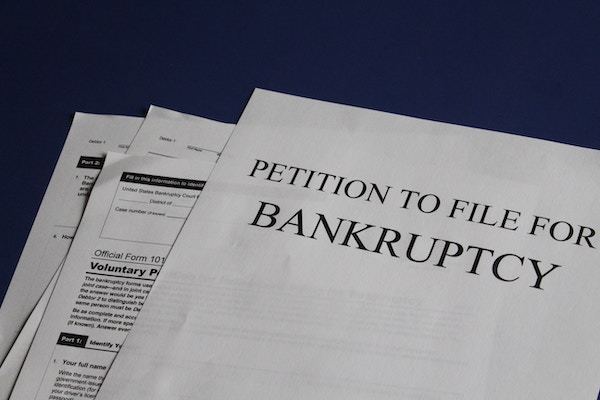
In our experience, there is no reliable way to predict if an airline will go bankrupt. Sometimes airlines are rumoured to be in trouble for years, but never succumb to bankruptcy, whilst others seemingly fail overnight.
Taking these steps will help you to protect yourself should the worst happen and your airline goes bankrupt after you’ve booked your flights.
1. Purchase flights with a credit card
As we mentioned above, your credit card is often your best chance of getting a refund if your airline does go bust. If you are worried about airline failure ask your card provider about their policies before you go ahead with your purchase.
2. Take out travel insurance which covers airline failure
You should buy travel insurance for vacations anyway, but if you want to protect yourself from airline bankruptcies make sure that the policy wording doesn’t exclude airline failure. Ask the provider if they include SAFI (Scheduled Airline Failure Insurance), and also check what the policy excess is. It also best to always book with an ATOL protected provider.
3. Keep informed
You’re hardly likely to miss the headlines if a major airline does go bankrupt. But if you’re flying with a small or foreign airline you may want to check local news sites just so you’re not caught unaware before your trip.
4. Have a backup plan
If you become aware of any cause for concern you may want to start thinking about alternative routes. Find out what other airlines fly to your destination and be ready to book.
You may be tempted to book alternatives as a precaution, but beware of jumping the gun. If your original flight is not cancelled there will be no chance of getting it refunded.
Major airline bankruptcies – and what happened
Thomas Cook (UK) – 23rd September 2019
The UK’s oldest travel agent ceased all operations in early autumn, leaving an estimated 600,000 travelers stranded abroad, 150,000 of them from the UK. The UK government launched its largest-ever peacetime repatriation in order to bring them all home.
Aigle Azur (France) – 7th September 2019
Longstanding airline Aigle Azur was France’s second-largest airline, with routes extending beyond Europe to Russia, Senegal, Brazil, and more. Both Air France and IAG have expressed interest in purchasing the airline.
WOW air (Iceland) – March 28 2019
When Icelandic budget airline WOW air ceased operations all flights were canceled and the airline encouraged passengers to rebook with other airlines offering lower rates referred to as “rescue fares”. It followed months of financial uncertainty for the airline which had already sold or returned many of its aircraft, and began canceling flights in October 2018.
Primera Air (Denmark) – October 2, 2018
This Latvian-owned low-cost airline left passengers stranded on both sides of the Atlantic when it ceased operating in 2018. The BBC reported the failure was likely a result of unsustainable growth and a failure to secure funding.
Jet Airways – 17th April 2019
India’s oldest private airline, Jet Airways, suspended operations due to lack of funds. Formerly India’s second-biggest air carrier, they had been operating minimal flights per day since the start of 2019.
Wow air – March 28, 2019
When Icelandic budget airline WOW air ceased operations all flights were cancelled and the airline encouraged passengers to rebook with other airlines offering lower rates referred to as “rescue fares”. It followed months of financial uncertainty for the airline which had already sold or returned many of its aircraft, and began cancelling flights in October 2018.
FlyBMI (UK) – February 16, 2019
East Midlands airline FlyBMI announced that it has ceased operations and is filing for administration. It blamed Brexit flight uncertainty for the financial difficulties. All flights were cancelled and passengers told they should not travel to the airport, but seek alternate flight arrangements.
Primera Air (Denmark) – October 2, 2018
This Latvian-owned low-cost airline left passengers stranded on both sides of the Atlantic when it ceased operating in 2018. The BBC reported the failure was likely a result of unsustainable growth and a failure to secure funding.
Air Berlin (Germany) – October 27, 2017
German’s second-largest carrier, Air Berlin, filed for insolvency in August 2017. However, as the BBC reported, the German government stepped in with a loan so that the airline could continue to operate while it looked for a buyer. The final Air Berlin flight flew in October after it was confirmed Lufthansa would purchase about half of Air Berlin’s assets. UK-airline easyJet later purchased a substantial portion of the remainder.
Monarch Airlines (UK) – October 2, 2017
The UK government launched the UK’s second-largest peacetime repatriation effort after Monarch Airlines declared bankruptcy, leaving 100,000 travellers stranded abroad. The New York Times noted the airline had been facing “increasingly competitive market conditions” prior to its failure.
Definitions: airline bankruptcy vs airline failure
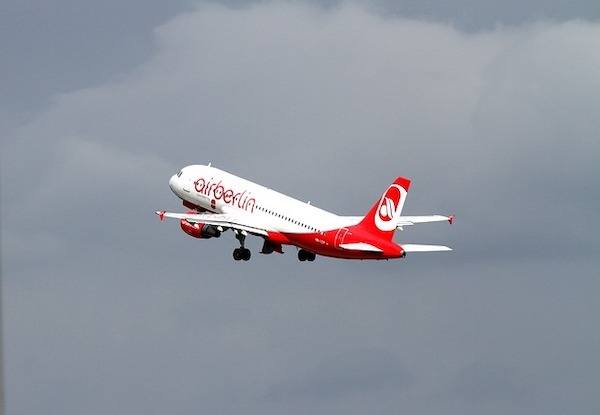
Airlines that go bankrupt don’t always cease operations. In fact, several prominent US airlines, including Delta and United Airlines have filed for bankruptcy – and they’re still flying. In these cases, they underwent restructuring while still remaining operational. These types of bankruptcies typically do not affect flyers, who can still go about their business as always.
Some airlines, however, fail. When a bankrupt airline goes bust, they cease operations completely. This is what happened with Primera Air when it folded on the 2nd of October, 2018.
What does bankruptcy mean for flight compensation claims?
If you submitted a compensation claim for a delayed or cancelled the flight before the airline went bankrupt, we’re afraid it’s unlikely you will see the money you are owed.
When any company goes bust there are always a whole lot of creditors left behind who are owed money. Compensation claims are at the bottom of a long list which features the airline’s investors, employees and passengers. In addition, since the airline has ceased all operations there’s no-one who could assess the validity of claims. So the administrators will simply view all claims for compensation as no longer valid.
There is one possible exception: if your flight was operated by a different airline who had partnered with the airline which went bust. In that case, we’ll continue pursuing that partner airline for compensation passengers are owed.
—-
Have you got any questions about airline bankruptcies which we haven’t answered above? Let us know in the comments below.
—-
Flight delays happen, but that doesn’t mean you have to accept them. You may be entitled to a much as €600 in compensation. If your flight was delayed, cancelled, or overbooked within the last three years.
85% of passengers don't know their rights. Don't be one of them.
AirHelp has been featured in:



